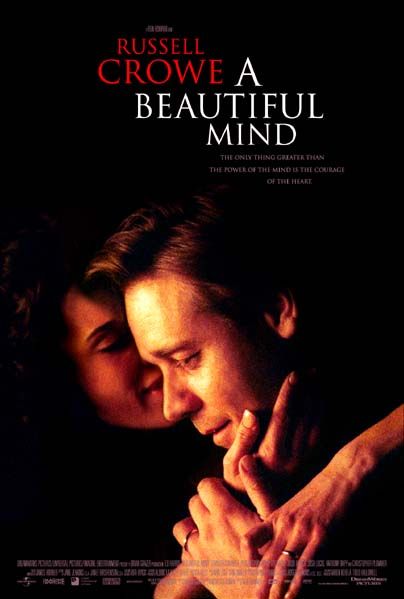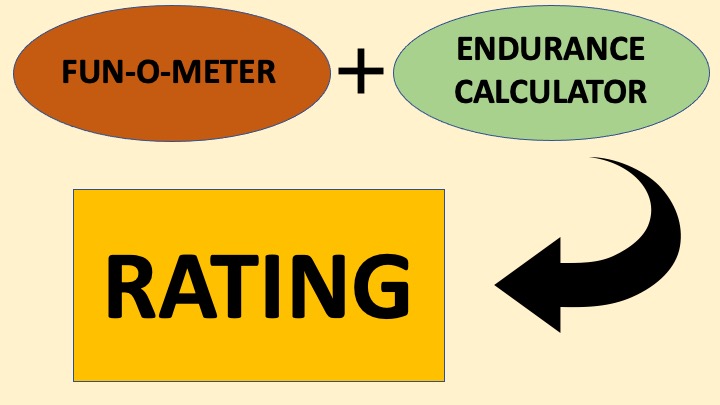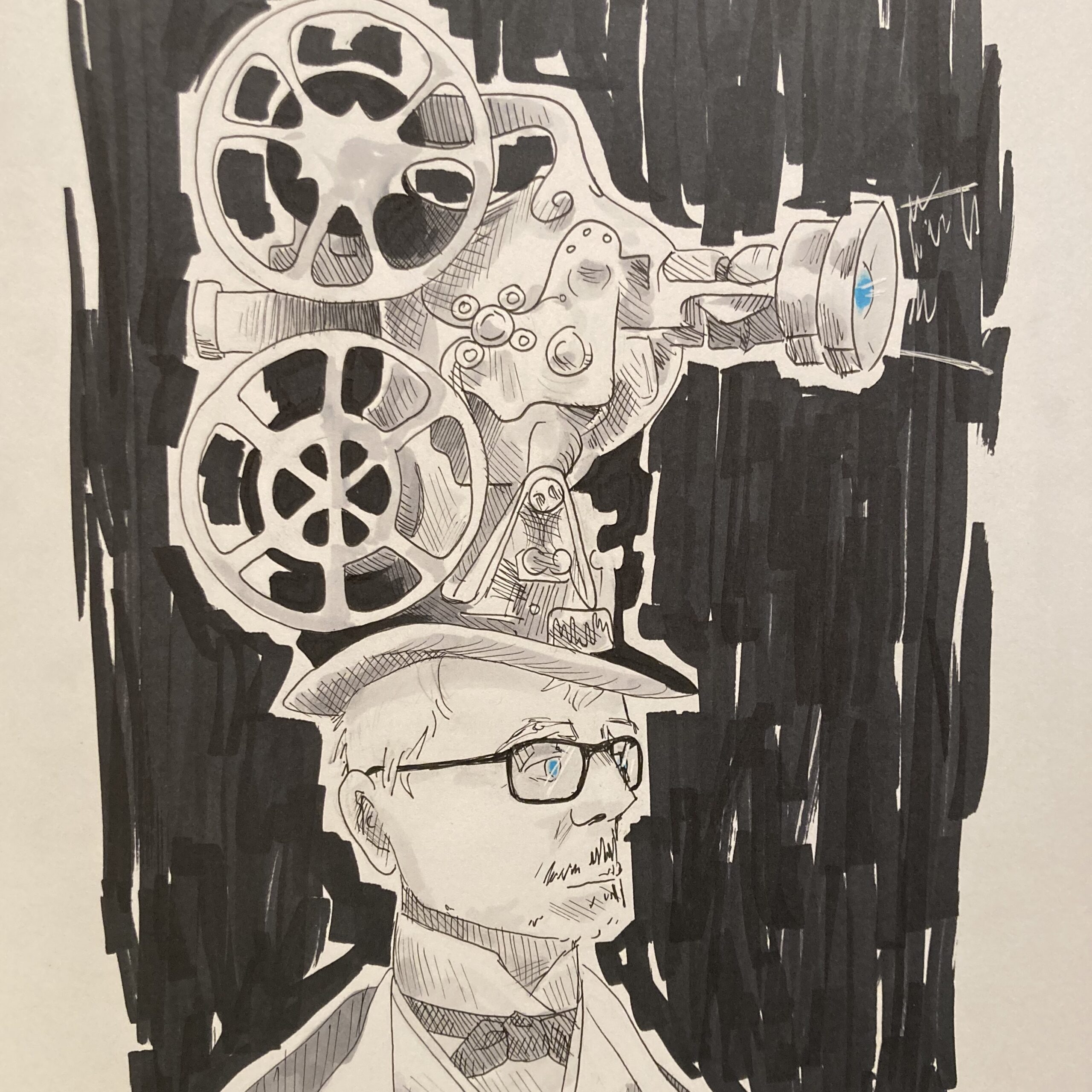“I’ve gotten used to ignoring them and I think, as a result, they’ve kind of given up on me. I think that’s what it’s like with all our dreams and our nightmares.”
Ron Howard’s Best Picture Oscar winner for 2001, A Beautiful Mind, features rich costume and set design, convincing make-up effects, and a too-good-to-be-untrue central story about a man’s exquisite genius hidden beneath layers of mental disease. It is an interesting period piece. What it is not, however, is a great movie.

Based on Sylvia Nassar’s award-winning biography of Nobel Prize winner John Nash, the book was optioned by Imagine Entertainment, the production company of longtime business partners, Ron Howard and Brian Grazer,[1] and it was adapted for the screen by Akiva Goldsman.[2] Then Imagine hired Russell Crowe to star as Nash following on the success he enjoyed the previous year as Best Actor for his titular role in Ridley Scott’s Gladiator (2000). Fill-in the background cast with recognizable performers like Jennifer Connelly, Ed Harris, Christopher Plummer, and Judd Hirsch, sprinkle in a couple of relative newbies like Paul Bettany, Josh Lucas, Adam Goldberg, and Anthony Rapp, add-in excellent craft leaders like James Horner as composer and Roger Deakins as cinematographer, and, voilà, a hit movie meets its audience.
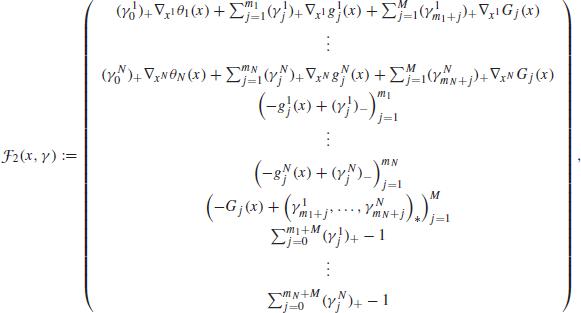
The story forms around Nash’s early career developing a mathematics concept he calls “governing dynamics.” The idea is connected to a meet-cute moment when Nash forecasts how five single men in a bar should be approach five single women in the bar, assuming all parties want companionship; the gist is that self-interest is best fulfilled from a group’s interest being served at the same time. From there Nash becomes a professor and government contractor, and then the variously hinted-at-problems of his delusional hallucinations, paranoia, and possible autism cripple him. Along the way he meets and marries Alicia (Connelly), fathers a child, gets institutionalized, and finds a way to pin his mental disease on a lack of discipline.
Years later, after he’s learned to accept being an oddity, he learns that his theory of governing dynamics undergirds a stunning number of unexpected industries, and he is given a Nobel Prize in Economics. He thanks his wife in his acceptance speech and toddles off into the crisp air of wintertime in Sweden.
Crowe gives a tick-heavy performance as Nash, although we can’t not notice the brawn of his nerdy mathematician. Connelly’s Alicia is long-suffering and thin, and beautiful and selfless, and her devotion flies in the face of what many of us know to be the truth of living alongside mental disease.
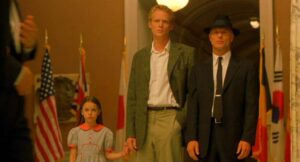
Perhaps the best thing in A Beautiful Mind is the way Howard’s crew renders Nash’s disorder. We see figments of his imagination as “real” because that’s what Nash experiences. That many of these sequences are tense and heartfelt makes them memorable; that the dialogue is hammy is too bad. Credit goes to Harris and Bettany for pursuing their imaginary parts with gusto, but recognize that this story relies on broad strokes like musical cues to stoke emotional reactions that are, mostly, unearned.
–February 28, 2019

[1] Imagine’s projects are many. Movie highlights include Kindergarten Cop (Ivan Reitnman, 1990), Apollo 13 (Ron Howard, 1995), 8 Mile (Curtis Hanson, 2002), and Solo: A Star Wars Story (Ron Howard, 2018); while on TV Imagine has produced Sports Night (1998-2000), 24 (2001-2010), Arrested Development (2003-2006, 2013-present), and Parenthood (2010-2015).
[2] He’s written, or co-written, hits like A Time to Kill (Joel Schumacher, 1996), I, Robot (Alex Proyas, 2004), and The Da Vinci Code (Ron Howard, 2006).
